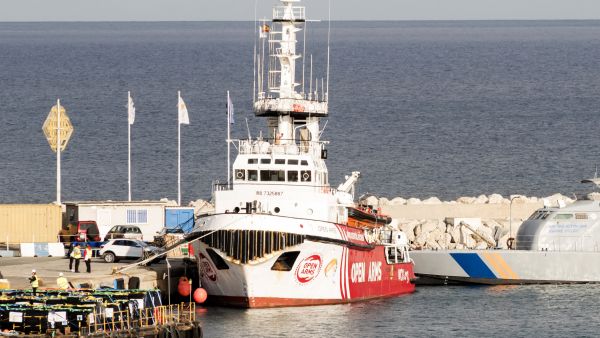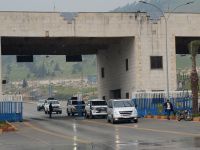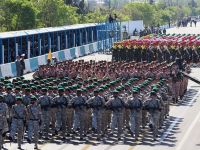ALBAWABA - The US Army has dispatched a ship to deliver humanitarian aid to Gaza, Central Command (CENTCOM) announced on Sunday, just days after President Joe Biden pledged to build a temporary port to feed the besieged territory.
General Frank S. Besson left Joint Base Langley-Eustis in Virginia "less than 36 hours after President Biden announced the US would provide humanitarian assistance to Gaza by sea," according to a CENTCOM statement.
The logistics support vessel is "carrying the first equipment to establish a temporary pier to deliver vital humanitarian supplies," it stated.
Biden's declaration in his State of the Union address on Thursday follows UN warnings of catastrophic starvation among Gaza's 2.3 million Palestinians five months after Israel launched its brutal aggression on the enclave.
Since Gaza has no port infrastructure, the US first intends to use Cyprus, which has a method for vetting cargoes that will include Israeli officials, so eliminating the necessity for security inspections in Gaza. The majority of Gaza's population is now internally displaced, with substantial bottlenecks in relief deliveries at land border checkpoints.
Al-Aqsa Flood operation against Israel
Hamas military group announced on Oct. 7 a military operation called "Al-Aqsa Flood" against Israel which is the biggest offensive in decades.
Palestinian fighters “infiltrated” Israel from the Gaza Strip and captured military bases and took hostages as photos and videos went viral online showing Hamas fighters on vehicles inside Israel and others paragliding into occupation territory.
In response, Israeli armed forces announced targeting Hamas positions inside the Gaza Strip. Thousands were killed, and dozens of thousands of others were injured in the Israeli attacks on the Gaza Strip.
The latest statistics by the Ministry of Health in Gaza revealed that the death toll from Israeli brutal pounding on the Gaza Strip since October 7 has soared to 30,960 people, with more than 72,524 injuries.
Since then, approximately 85% of Gazans have been displaced, all of whom are suffering from severe food insecurity, and the healthcare system has collapsed. Hundreds of thousands of people lack shelter, and aid trucks are entering the area at a lower rate than before the conflict began.







